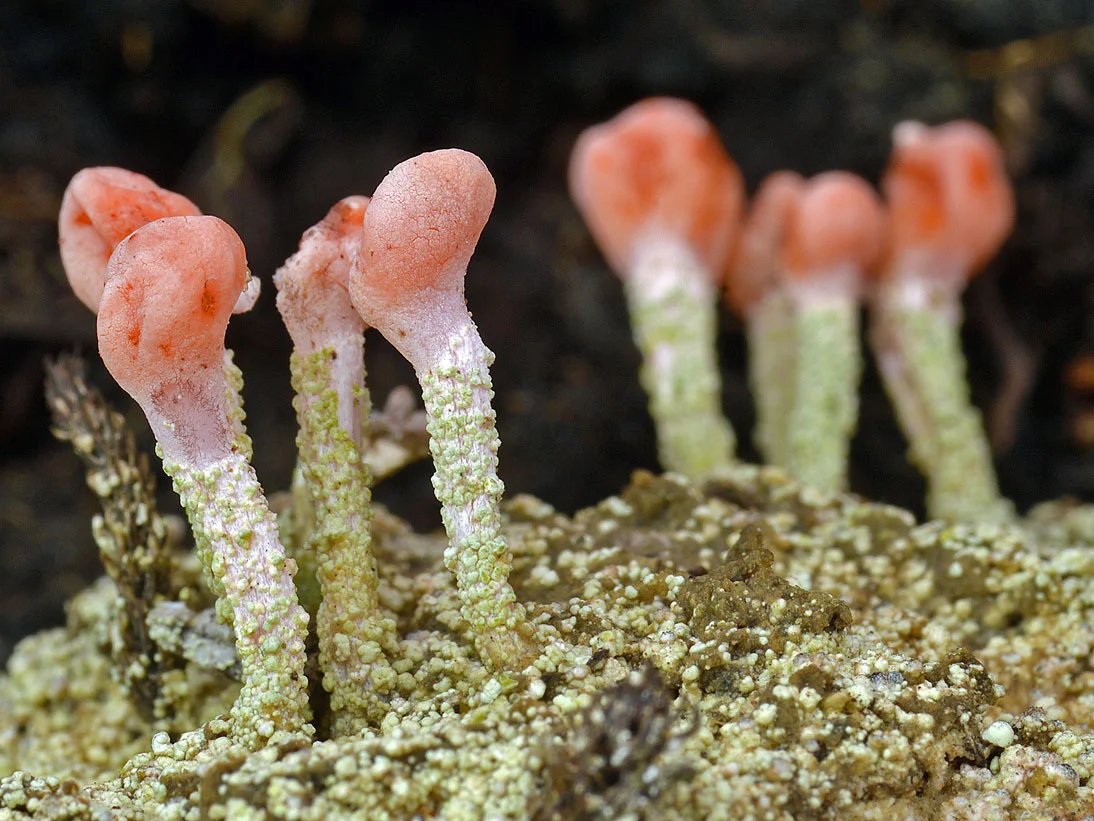There are very real fears in the civilised world that Donald Trump could stand and even win again in 2024. The fear is that his behaviour is dangerously unpredictable because he is given to bouts of paranoid anger and a desire for revenge for imagined wrongs, or even for failure to acknowledge his expertise on everything.
He is psychologically incapable of accepting that he isn't the best at everything and that there really are people who know more than he does and understand things better than he does, and whose advise he should be listening to.
This manifested early on in his presidency when he obsessively undid everything his predecessor, Barak Obama, had achieved, including the measures to combat climate change, the 'nuclear' deal with Iran, the Affordable Care Act, the disastrous dismantling of the provisions for a possible pandemic, and later, in his handling of the COVID-19 pandemic. He not only rejected the advice of the scientists but launched a campaign of abuse and vilification of those who tried to give him advice on the handling of it because it wasn’t the advice he wanted. Instead, he encourages the view that the virus was a hoax and not very serious, as he advocated untried and dangerous quack medicine he had heard about from far-right fruitloop sources, and even suggested drinking bleach to kill the virus.
But is that a symptom of an all-controlling narcissistic personality disorder?
According to the symptoms of narcissism described in this article by Paula Ross, a psychology lecturer at the Australian Catholic University and Nicole Lee, a professor at the National Drug Research Institute (Melbourne), Curtin University, Australia, he might well have. The article is reproduced here under a Creative Commons license and has been reformatted for stylistic consistency. The original can be read here.

Is narcissism a mental health problem? And can you really diagnose it online?

Paula Ross, Australian Catholic University and Nicole Lee, Curtin University
It’s not uncommon these days to hear someone – such as an ex romantic partner or a politician – described as a “narcissist”.
Singer Robbie Williams recently told an interviewer he took an online test to see if he was one. He revealed the test suggested a “mild indication of narcissistic personality disorder”.
But what is narcissism, when is it a problem and can an online test really provide a reliable diagnosis?
A fixation on oneself
According to the Greek myth, a beautiful young man called Narcissus fell in love with his own reflection in a pool of water. He stayed staring at it for the rest of his life. His name gave rise to the term “narcissism”, characterised by a fixation on oneself.
Narcissism is a cluster of traits along a range of severity. At one end of the spectrum, people may be confident, charming and well-adapted.
In the middle of the spectrum, people may be overly focused on seeking out status, success and admiration at work or in their social lives. They can have a need to appear perfect, special or superior to others in order to feel OK about themselves.
At the very extreme end, it may become a disorder in which people can be self-centred, grandiose and destructive.

Read more:
Narcissists: there's more than one type – and our research reveals what makes each tick
What’s ‘narcissistic personality disorder’?
“Narcissistic personality disorder” is a mental health diagnosis given to people with extremely narcissistic traits. These traits have reached the point where they start to impact on the person’s ability to function at work or socially.
Narcissistic personality disorder is relatively rare. It is estimated around 1% of the population has a diagnosable form of the condition.
Men tend to be more narcissistic than women. There is no evidence that young people are more narcissistic than previous generations at the same age.
Their symptoms are described as “pervasive”, meaning they are obvious across all of a person’s activities, not just in specific situations. So, on the face of it, pop star Robbie William’s insistence his score on the quiz reflected only his narcissistic personality on stage is not quite accurate.
People with narcissistic personality disorder tend to overestimate their abilities and exaggerate their achievements. And they are surprised or angry when others don’t notice their accomplishments.
They need constant confirmation of their value, specialness or importance. They may have fantasies about power, success, having perfect lives or relationships, believing these are not only achievable but deserved.
When narcissists see that good things are happening for you, it triggers their self-hatred and many insecurities. They can’t stand to see targets/victims winning and progressing because they need others to be suffering and failing to feel better about their own mediocrity.
— Narcissist Facts 101 (@narcissistfacts) August 22, 2022
People with narcissistic personality disorder might talk a lot about how people in their lives are extra special in some way – such as being the very best at something or leaders in a particular field – because it increases their own sense of specialness by association.
When their status or superiority is challenged they can respond with extreme anger, rage or belittling the person and their opinion. They find it difficult to tolerate the thought they may be flawed or vulnerable in some way.
In relationships, they can have exceedingly high expectations of devotion from partners and friends, but may themselves be low in empathy and lack of awareness of others’ needs. They may be envious of and unable to celebrate the success of others, and respond by devaluing them.
They are often unaware of the impact of their behaviours on others.
Read more:
'Impulsive psychopaths like crypto': research shows how 'dark' personality traits affect Bitcoin enthusiasm
How is it diagnosed?
Diagnosis should only be made by a mental health professional. Trying to diagnose yourself or someone else with an online quiz may give you results that are misleading and unhelpful.
Narcissistic personality disorder is a cluster of symptoms on a continuum and many diagnoses share similar symptoms. For a proper diagnosis, a clinician needs to assess which cluster of symptoms is present, how far along the continuum they are, and which other diagnoses to exclude.
But a symptom checklist might help you work out whether you should consider seeing a mental health professional for further assessment or support.
Read more:
Before you judge personality tests, consider what they don't judge
How do people get this way?
We don’t know exactly what causes narcissistic personality disorder.
There is probably a genetic component. Traits such as aggression, poor emotional regulation and low tolerance to distress tend to be high in people diagnosed with narcissistic personality disorder.
Certain experiences in childhood are also more likely to lead to narcissistic personality disorder. These might be either particularly negative, such as trauma or rejection, or overly positive, such as excessive praise or being constantly told you have extraordinary abilities. Parenting styles that are either very neglectful or overly protective are also associated with the development of narcissism.
People with narcissistic personality disorder often have other mental health conditions, particularly mood disorders. They also have a high rate of suicide. These conditions may have a common cause or they may be a result of the difficulties people with narcissistic personality disorder have with social interactions.
Can it be treated?
Narcissistic personality disorder is a lifelong condition that is considered manageable but not curable. There is no standard medicine or psychological treatment for narcissistic personality disorder.
Psychological treatment aims to reduce the severity of symptoms, improve mood, manage impulses, and build communication and relationship skills. One of the main goals of therapy is to develop more realistic expectations of others.
Medicines that help with other mental health problems like anxiety, depression and bipolar disorder may also help reduce some symptoms.
People are more likely to seek help for another mental health condition, such as depression. Getting treatment for these conditions can also positively impact on personality disorder symptoms.

Trump’s dangerous narcissism may have changed leadership forever

Donald Trump and his narcissistic style of leadership will soon vacate the political stage, despite his recent attempt to cajole elected officials into illegally changing the outcome of November’s presidential election and inciting a mob of supporters to storm the U.S. Capitol.
But what about those who aspire to key leadership positions who have been inspired by Trump? Will they perpetuate this new model of dangerous leadership without understanding that the potential fallout could be viral and spread to their organizations and employees?
American psychologist and author John Gartner, formerly of Johns Hopkins University, sounded the alarm about Trump three years ago, calling on him to be removed from office because he was “psychologically incapable of competently discharging the duties of president.” The petition garnered thousands of signatures.
Narcissism can be described as a grandiose sense of self-importance. A healthy dose of narcissism can be an integral part of a mature adult’s psyche. It can foster positive traits such as confidence, creativity, humour and wisdom.
These are of course important qualities that many of the world’s genius artists, business people and scientists possess.
But there’s a flip side to this coin, since pathological narcissism may leave people extremely isolated, distrustful and lacking in empathy. Perceived threats can easily cause pathological narcissists to fall into fits of rage.
How narcissism affects leadership styles
Their confidence and larger-than-life attitude, after all, have propelled them to the top. Narcissistic leaders often emerge during times of crisis where followers seek the leadership of a charismatic, confident and creative chief.
To the outside world, narcissists appear self-assured, charming and likeable upon first glance. For this reason, they often emerge as leaders. However, important research has shown the thin veneer of these qualities becomes apparent over time, and there’s often a stark contrast between a narcissist’s perceived leadership abilities and their actual abilities. The narcissistic leader’s weaknesses come to the surface.
While their hunger for power and admiration may yield positive results in the beginning, in the long run, narcissistic leaders are bound to leave damaged systems and relationships in their wake.
Identifiable negative traits of narcissists include sensitivity to criticism, poor listening skills, lack of empathy, intense desire to compete, arrogance, feelings of inferiority, need for recognition and superiority, hypersensitivity, anger, amorality, irrationality, inflexibility and paranoia. Some of these traits seem to fit Trump.
‘Destructive tyrant’
A leader who was perhaps once seen as a visionary slowly but surely transforming into a destructive tyrant can have grave consequences for organizations that are helmed by narcissists. Narcissistic leadership can negatively affect job satisfaction and morale while fuelling chaos of the type we saw at the U.S. Capitol as well as employee turnover.
First lady's chief of staff and former WH press secretary Stephanie Grisham resigns over violent protests https://t.co/eRdMo4tpKN
— Ana Cabrera (@AnaCabrera) January 7, 2021
Indeed, there is no more relevant or obvious example of the damaging effects of excessive narcissism on leadership ability than Trump. His chaotic leadership style is useful to study since very few of us are trained to deal with this type of behaviour and this type of person.
Before he was elected president, Trump had made a name for himself in the mainstream media and turned his public persona into a lucrative brand. His 1988 book, The Art of the Deal, and later his NBC show, The Apprentice, garnered a large following of admirers, many in leadership positions.

We’ve experienced signs of the destructiveness of his behaviour on the world stage. Rather than knowing the “art of a deal,” a president and any other leader should know the art of diplomacy, empathy and service. Unfortunately, these are words that aren’t part of Trump’s vocabulary.
What’s more, his erratic behaviour seems to have had a detrimental effect on his team members, who can never seem to control his outbursts. This should serve as a warning to organizational leaders flirting with this type of leader.
Can the narcissist be managed?
In today’s uncertain market, more and more companies are becoming comfortable with this type of unpredictable and chaotic leadership style, hoping for big gains and magic.
It’s critical to understand that it’s possible for businesses to reap the benefits of a narcissistic leader as long there’s a trusted sidekick or No. 2 who can anchor their grandiose ideas and help control them. This is tricky to do and not common in contemporary organizations as they attempt to eradicate any perceived competition or control.
Any type of controlling influence has been absent in the Trump administration as he operates without guardrails, creating great fallout.
The issue for followers is it never ends well. We have seen this real-time case study play out for the past four years of the Trump presidency.
The challenge is: How will current and future organizational leaders accept or reject the type of narcissistic and damaging leader who is determined to win at any cost?
This article is republished from The Conversation under a Creative Commons license. Read the original article.
It would probably be the end of American democracy if he is re-elected in 2024. It would certainly be dangerous for the rest of the world. Having one paranoid , psychotic narcissist with nuclear weapons, in the shape of Vladimir Putin of a resurgent Russia, who is almost a clone of Donald Trump, is dangerous enough, without adding another one to the mix.










































